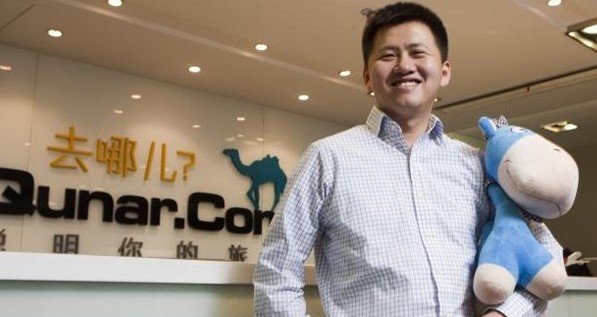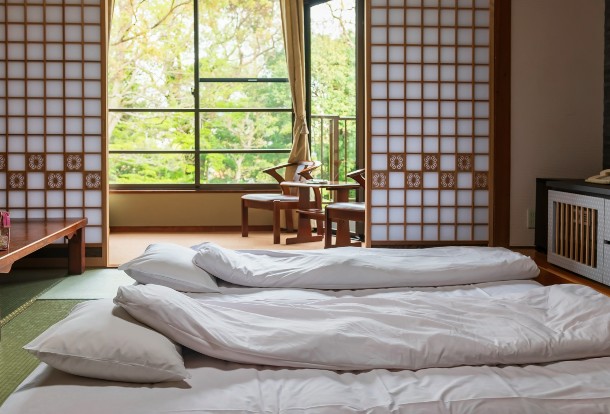ChinaTravelNews, Ritesh Gupta - Its Q2 results may have surpassed previous guidance in terms of both revenue garnered and operating margin achieved, but Qunar.com intends to attain a certain level in indirect distribution that is considered to be a benchmark for being the best in the business.
Even as Chenchao Zhuang, CEO and co-founder of Qunar, picked the company’s growing mobile user base and hotel direct business as the major highlights for Q2, he stated that the journey is far from being over.

Qunar's tenacious CEO CC Zhuang
Of course, profitability is on track, according to the team. Also referring to the scope for improvement during the company’s Q2 Earnings Call, Zhuang mentioned that there is still plenty of room to grow the hotel business. It should be noted that a major chunk of hotels that have been contracted directly came on board only 4-5 quarters back. In terms of performance, Qunar is eyeing better yields and operating results.
“We plan to increase our volume contribution to a level on par with peers in mature markets in the world, where leading OTAs can deliver on average over 200 room nights to a hotel in a single quarter,” said Zhuang. As for the current contribution, average direct volume was around 50 room nights per hotel for Q2, rising from 29 room nights per hotel in Q1 and 17 room nights per hotel achieved for the same period last year.
The team added that it is garnering new volumes in an accelerating manner for hotels. Qunar registered hotel volume increase of 145% y-o-y to 17.8 million room nights stayed in the quarter.
This, as Zhuang pointed out, turned out to be the highest growth rate since Qunar initiated its hotel direct initiative.
“We almost tripled volume we bring to each hotel,” said Zhuang, who added that going by the recent quarter the trend is similar for both 4- and 5-star hotels as well as mass-market hotels. He also underlined that his team has posted such performance with “a smaller on-the-ground team than our peer group”.
The figure pertaining to directly signed hotels touched 280,000. Direct hotel earnings accounted for 79% of total hotel volume in Q2. It was 38% for the same period in 2014. Also, in terms of volume, mobile accounted for 52% of total flight volume.
As for competition, Qunar mentioned that for Q2 total room night stayed at 4- and 5-star hotels was around 5 million, more than tripled y-o-y. This, according to the company, indicates that it is now the second-largest booking platform for 4- and 5-star hotels in China.
“The gap between us and the incumbent is getting smaller and smaller. Our hotel partners take note of our rapid rise and appreciate the value we bring to them,” said Zhuang.
He also added that post the sale of Expedia’s stake in eLong to a group of investors, including Ctrip, hotels are approaching Qunar. “…we are their last alternative channel,” said Zhuang. “So 4-and 5-star hotels are actually going very rapidly for our business from the last quarter.”
Offline-to-mobile transition
The second major component of Qunar’s growth strategy is its mobile user base. Mobile paved way for 68% of total revenues in Q2. The sheer contribution validates the budget and resources that have been allocated for propelling growth via mobile. Mobile revenues for Q2 touched RMB600 million, up by 322% y-o-y.
Zhuang, who added that Qunar is now only behind Alibaba, JD and Ctrip in the race for being the largest e-commerce entity in China with a quarterly GMV exceeding RMB35 billion, highlighted the current offline-to-mobile trend as the penetration rate in China is still very low at this juncture, but is evolving quite quickly. Qunar is a frontrunner in this offline-to-mobile transition, he said.
The company posted on average more than 300,000 daily hotel room nights stayed in peak days around July-end. Again mobile starred with 85% of total volume during the same period.
New move
The company is planning to introduce a merchant model for hotels in Q3.
This way the intermediary is gearing up to bear possible business risk, including the inventory risks for the transaction sake.
The objective is to work out “unique products in strategic inventories”, said Zhuang. He added that the amount in comparison to the overall total hotel volume will be miniscule. Also, 4- and 5-star hotels will contribute more in the merchant model.
The company is going to be selective with its new initiative. Zhuang believed the timing is apt, and explained the same too.
“On peak days over the summer our room nights stayed already represented around 10% of China's total hotel market. With our rapidly expanding scale, now is the right time to start to leverage a merchant model in a strategic deliberate way,” he said.
Another major development that is worth keeping an eye on is Qunar displaying location-based hotel data through the Baidu Maps interface. The OTA is to integrate hotel information and products into the PC and mobile app versions of Baidu Maps, as announced in June this year.
Efficacy
On the expenditure side, Qunar continued to target new mobile users through offline channels. Sales and marketing expenses for Q2 were RMB703 million, up 227 y-o-y.
Yilu Zhao, chief financial officer of Qunar, indicated that new users brought in by the campaign featuring the offline channels were “highly engaged”.
“Their retention and repeat ratio in the weeks and the months following their initial transactions were on average slightly better than the users we acquired through regular online marketing channels,” said Zhao.
The company is confident that with current momentum (featuring hotel volume and mobile user base growth, along with the efficacy of offline campaigns) and sustained operating leverage, through scale and automation the team would achieve its quarterly non-GAAP profitability target by the end of 2016.
Qunar shared that its flight take rate is now over 2% and hotel take rate is now over 5%. Even as volume would drive revenue surge, increment in take rate would play a crucial role in attaining profitability in the time to come.
When compared with targeted revenue generation, the company intends to bank on its technology prowess to keep its overall headcount under check. Total headcount at the end of June was around 8,000 and the figure for this year is around 9,000.




